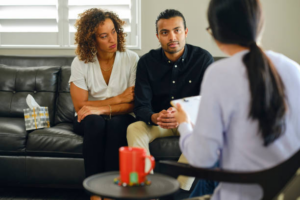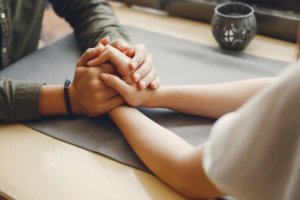
Divorce reshapes the rhythm of daily life. What once felt stable may now feel uncertain. Even when separation feels like the right step, emotions often clash — sadness, relief, confusion, anger. Navigating these feelings without guidance can feel overwhelming. Individual counselling offers support, clarity, and tools for growth.
While the end of a marriage can feel like a failure, it can also mark the beginning of something meaningful. With the right help, this chapter can bring healing and purpose. In this article, we explore how individual counselling after divorce can help rebuild your emotional foundation and guide you toward a stronger future.
Understanding Divorce Through a Personal Lens
No two separations feel the same. For some, the decision is mutual. For others, it’s a painful shock. Either way, the loss of a shared life affects the mind and body. Grief, self-doubt, guilt — these are natural reactions.
Marriage and divorce counseling helps individuals understand the journey behind them and prepare for what lies ahead. Where joint counselling once focused on saving a relationship, individual support now focuses on self-awareness, emotional healing, and future readiness.
Therapists offer a space without judgment, allowing people to explore their feelings openly. This space is not only safe but also structured, helping individuals make sense of complex emotions without losing themselves in the process.
Why Individual Counselling Matters After Divorce?
People often hear “move on,” but emotional wounds need time and care. Bottling up grief can lead to deeper mental stress, even illness. Talking with a trained counsellor supports emotional processing and reduces inner tension.
Here’s why individual counselling after divorce offers so much value:
1. Emotional Clarity
- Divorce can bring emotional storms. You may feel lost or unsure about your identity outside the relationship. Counselling helps you name and understand these feelings, which lowers anxiety.
2. Coping Skills
- Instead of turning to unhealthy habits, therapy offers strategies to manage stress. Breathing exercises, journaling, and boundary setting these tools that can prevent emotional overload.
3. Confidence Rebuilding
- Self-worth often takes a hit during a breakup. Therapy helps rebuild inner trust and reminds you of your strengths, values, and dreams outside the relationship.
Common Emotional Challenges After Divorce
Healing isn’t linear. It moves in waves. Counselling helps break down common struggles into parts that feel manageable.
1. Grief and Loss
- Even if divorce was the right choice, grief still follows. The end of shared dreams can bring sadness that feels deep and long-lasting. Counselling supports grieving without judgement.
2. Anger and Blame
- It’s easy to fixate on who did what wrong. That energy often burns inside, creating bitterness. Therapy helps shift focus from blame to growth.
3. Fear of the Future
- The unknown can feel terrifying. Will you find love again? Will your children adjust? Counselling helps people manage these fears by building trust in their choices.
4. Loneliness
- Loss of companionship hits hard. Therapists guide people to create new support systems and reconnect with activities that bring joy.
What Happens During Sessions?
Many people worry about what to expect. Will they cry? Will they be judged? These fears are common, but they fade with time.
Sessions usually begin with a simple question: “How are you today?” From there, the conversation can explore:
- Emotional check-ins
- Reflections on the marriage
- Relationship patterns
- Personal values
- Parenting roles, if applicable
- Goal setting
A strong counselling relationship creates a stable space. Over time, you learn how to untangle emotions, regain focus, and plan next steps with clarity.
How Individual Counselling Differs from Marriage and Divorce Counselling?
Many couples try marriage and divorce counselling before separating. These sessions focus on the relationship itself. Individual sessions focus on you, your needs, your choices, and your growth.
Here’s a simple breakdown:
| Type of Counselling | Focus | Outcome |
| Marriage and Divorce | Partnership dynamics | Relationship decision-making |
| Individual Counselling | Personal healing and identity | Emotional recovery and self-awareness |
This difference matters. Once the relationship ends, the focus must shift from us to me.
Healing Isn’t Quick, But It’s Real
Many expect to “bounce back” quickly, but emotional pain doesn’t work that way. Progress shows in small ways: feeling lighter, sleeping better, and gaining interest in old hobbies.
Counselling helps mark these signs of healing. Therapists encourage people to notice progress, however small, and to stay present.
For those raising children, healing becomes even more important. Kids feel what parents feel. When you invest in your well-being, you model resilience, emotional strength, and healthy coping.
Facing Life’s Practical Changes
Divorce not only changes the heart. It changes routines, finances, and even your social life. You may lose mutual friends or feel unsure about attending family events alone. These shifts cause fresh stress.
Counselling guides you through these changes with planning and encouragement. It helps build daily routines that offer peace and structure. Step by step, life begins to feel manageable again.
How to Know If You Need Counselling?
Not everyone seeks therapy right away. Some wait months or even years. But certain signs suggest you might benefit from it:
- Struggling to get out of bed
- Losing interest in food, sleep, or hobbies
- Feeling anxious or angry most of the time
- Relying on alcohol or distractions to cope
- Trouble parenting or connecting with your children
- Replaying painful memories over and over
If these sound familiar, individual counselling can offer tools for balance and hope.
The Role of Support Systems
Friends and family mean well, but they may give advice that doesn’t help. “Get over it” or “find someone new” often misses the point. That’s why trained counsellors matter. They listen to understand, not to fix or judge.
Still, emotional recovery also needs community. Support groups, trusted friends, or community classes can help fill social gaps. Counselling often helps people find these networks.
Tips for Getting the Most Out of Counselling
Going to therapy takes courage. To gain the most from it:
1. Be Honest
- Even hard truths help. Your counsellor isn’t there to judge. They’re there to listen and support.
2. Stay Consistent
- Progress takes time. Missing sessions slow healing. Try to attend regularly, even on tough days.
3. Do the Work Between Sessions
- Therapists may suggest reflections, readings, or journaling. These help extend the benefits of therapy into daily life.
4. Set Goals
- It helps to know what you want. Whether it’s better sleep, less anger, or finding purpose, goals give therapy a clear direction.
Children and Divorce
If you have children, their well-being may be your top concern. Divorce affects them too. They may feel confused, angry, or scared. Individual therapy helps you support them with clarity and calm.
Some parents seek additional counselling for their children. Others learn strategies in their own sessions. Either way, emotional readiness helps you parent with strength and kindness.
Conclusion
Divorce feels like an ending, but with support, it becomes a beginning. Individual counselling offers a path to recovery — not through quick fixes, but through careful, compassionate growth.
Each session becomes a step toward peace. Each insight brings strength. Over time, you come home to yourself — wiser, steadier, and ready for the life you deserve.
You Can Read Also: Benefits of Hiring Physics Tutors in Singapore for Students Lacking in the Subject




